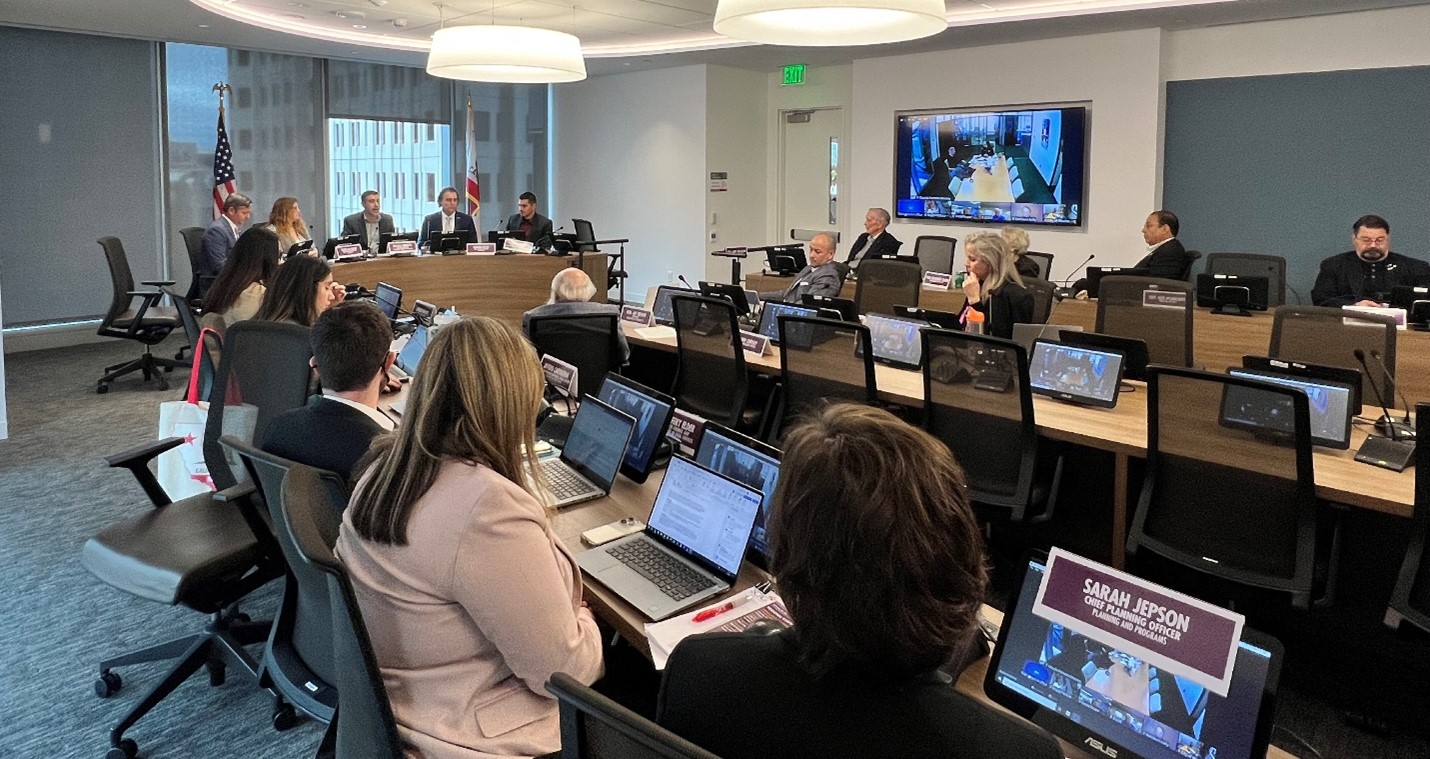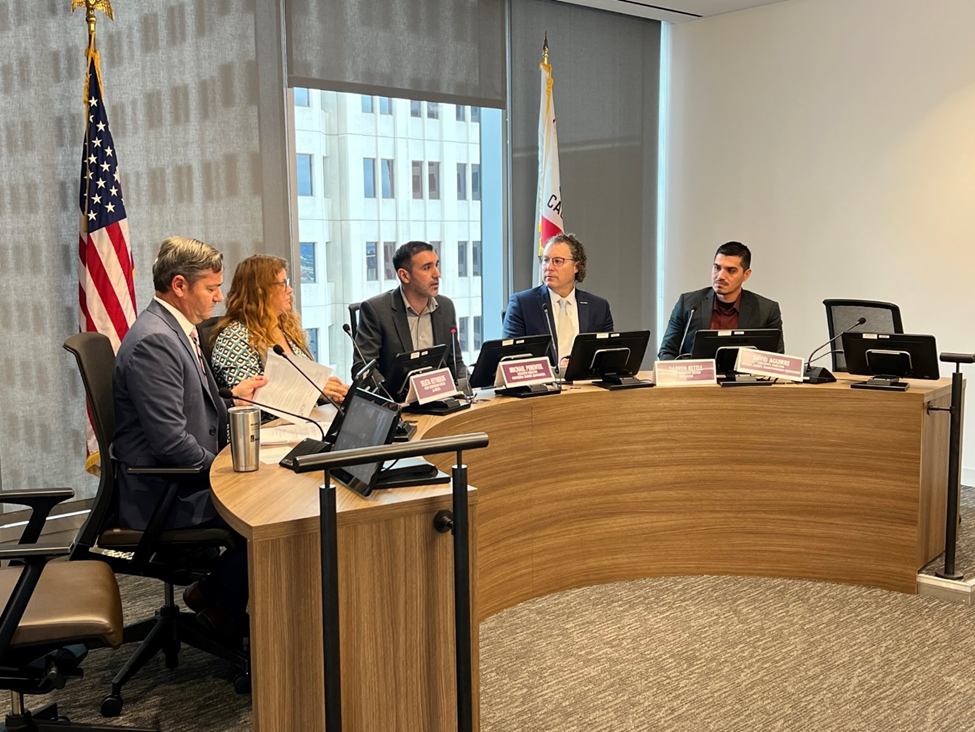
I had the pleasure of participating in the Southern California Association of Governments (SCAG) Regional Council Meeting on Feb. 1 as part of a rousing panel on ridership recovery and the future of public transportation. Moderated by SCAG Chief Operating Officer Darin Chidsey, the panel was an opportunity to share insights on Metrolink's progress and priorities while learning more about how industry colleagues have been tackling some of the same issues we’re facing.
Thanks to our proactive ridership growth and recruitment efforts, I was able to report that Metrolink experienced a 21% increase in ridership in 2023 compared to 2022. Unfortunately, due to remote work and office vacancies, we are still hovering at a 50-55% recovery rate from pre-pandemic levels. Despite these challenges, we are actively engaging new customers while retaining existing riders. And our launch of the Student Adventure Pass in October has been a hit, reflecting the younger generation's preference for sustainable and reliable transportation options.
Beyond our innovative fare promotions, I shared our how our strategic vision for Metrolink has evolved as we transition away from a commuter-focused model and reimagine our role within the regional transportation landscape to meet the needs of today’s riders. This entails expanding midday, evening and weekend service frequencies to better serve leisure travelers and those with non-traditional work hours. The successful pilot of service expansion on the Antelope Valley Line, introduced in October 2023, saw an 18% spike in ridership within the first six weeks, demonstrating the need for more options outside of the traditional 8-to-5 travel windows.

Transit & Rail Recovery Panel at from left to right, Darin Chidsey (SCAG); Seleta Reynolds (LA Metro); Michael Pimental (CTA) Darren Kettle (Metrolink); David Aguirre (ICTC)
The panel discussion, which featured Seleta Reynolds, chief innovation officer for LA Metro, Michael Pimental, executive director of the California Transit Association (CTA), and David Aguirre, executive director for the Imperial County Transportation Commission (ICTC), also emphasized the importance of state support for transit operations to achieve environmental goals. Additionally, we explored ongoing preparations for the 2028 Summer Olympics, focusing on building mobility hubs and ensuring safe and efficient transportation for athletes and spectators.
Overall, the event provided a valuable platform to contribute to the dialogue on the future of transit in our region, and I was grateful for the opportunity to be part of it.


